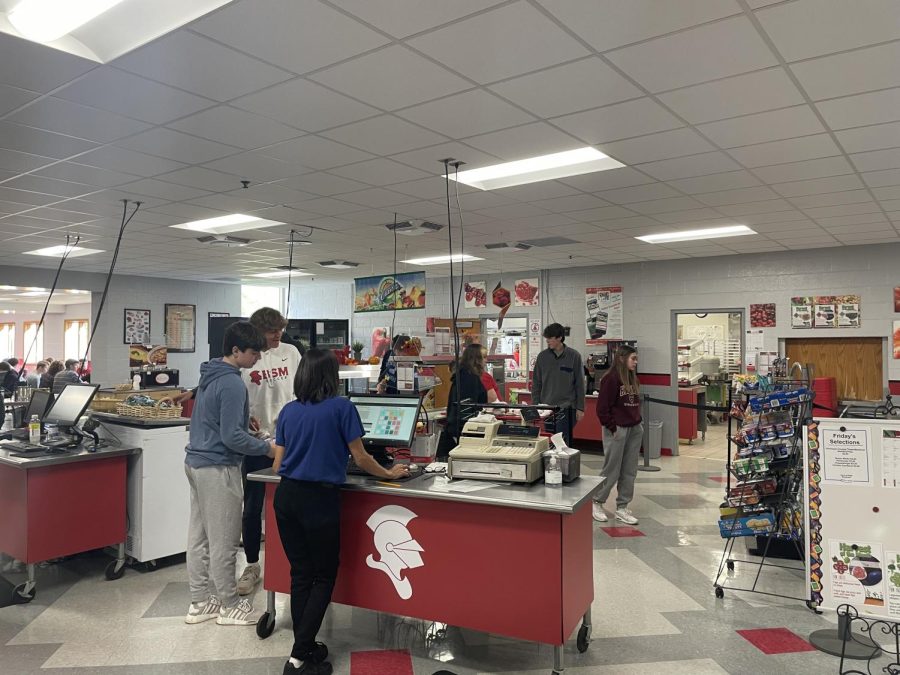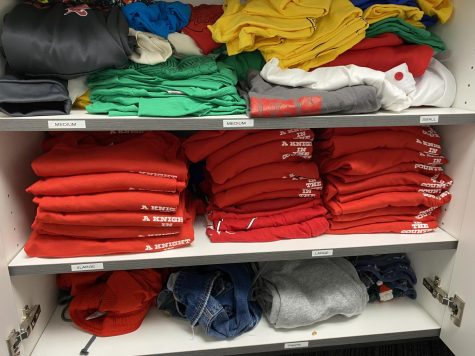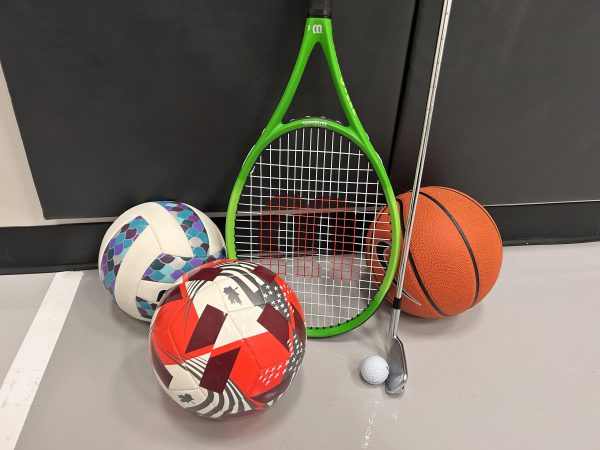BSM Bans In-Class Taher Trips
Students buying food from Taher during their lunch.
Over the last couple of weeks, BSM students have noticed that administration has changed the food rule. In the past students were allowed to go to the cafeteria and bring food back to their class if their teacher allowed, but now they are not allowed to buy anything from Taher while in class time.
Assistant Principal Matt Weingartz noticed that BSM hour supervisors were having trouble distinguishing students in BSM hour from students who are in class. “Students are staying for an extended amount of time in those areas that are not on BSM hour. So it comes out of wanting students to be in class so they’re not missing an instruction from their teachers. And then also not overwhelming the supervisor in like the cafeteria commons area,” Weingartz said.
Junior Anne Marie Khoueir was in favor of the old rule and enjoyed getting the freedom to bring food back to her class. “I feel like it’s really annoying especially since some teachers don’t believe that this rule should apply to them. So for the people in the main office to just decide for everyone in the building, it’s not really…fair to everyone because it’s not giving a student voice or a teacher’s voice in the matter,” Khoueir said.
Because Khoueir was so used to the old rule, she is having trouble getting out of her routine of getting snacks in certain classes. “I think I’d be able to focus better [with food] because having food in your body makes your mind focus more and just more productive…I’m hungry during classes [and that] disrupts my learning,” Khoueir said.
Contrasting to Khoueir, administrators are waiting to see if student behaviors will differ from before. “Time will tell to see what student behavior [changes] or if teachers notice any other discipline problems in the classroom. I can’t tell. I mean, there’s always going to be gives and takes out of any decision that you make. And that’s where we want to place more of an emphasis on keeping kids in the classroom and their instructional time,” Weingartz said.
Many students are hoping to get the rule changed back to the way it was and there might be some hope. “You always have to be able to adjust and you can’t be just, that’s too bad, you know, with anything. [We hope] it is an effective policy … and it is doing what the intended purpose of it is,” Weingartz said.




















































